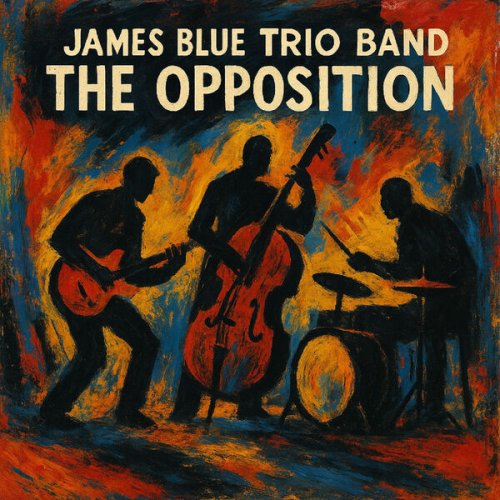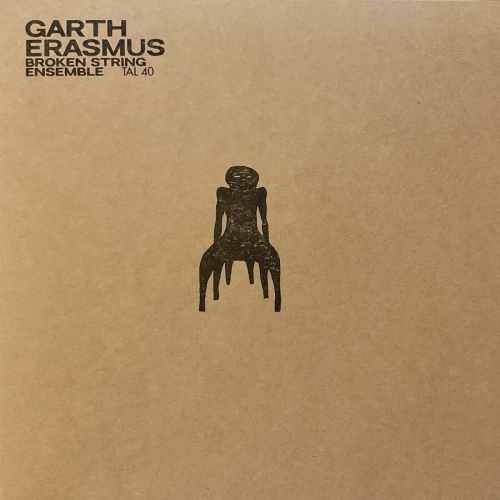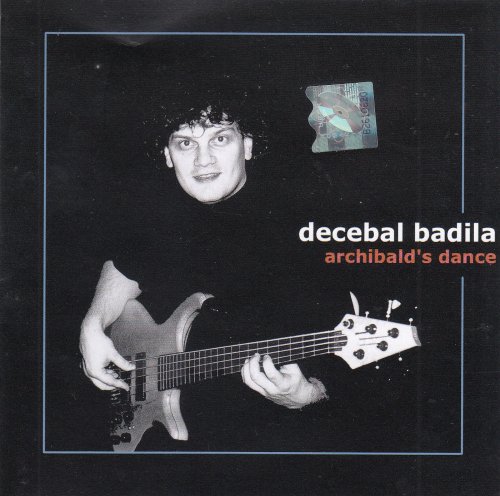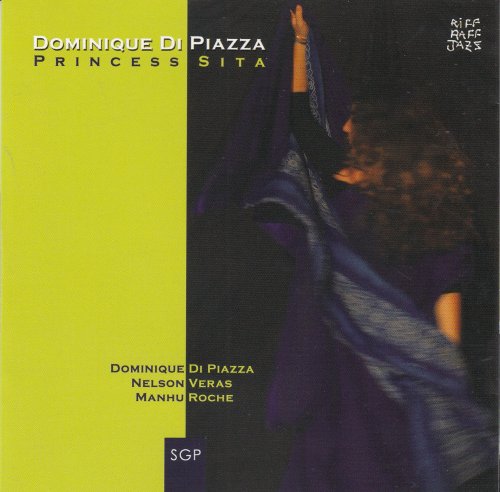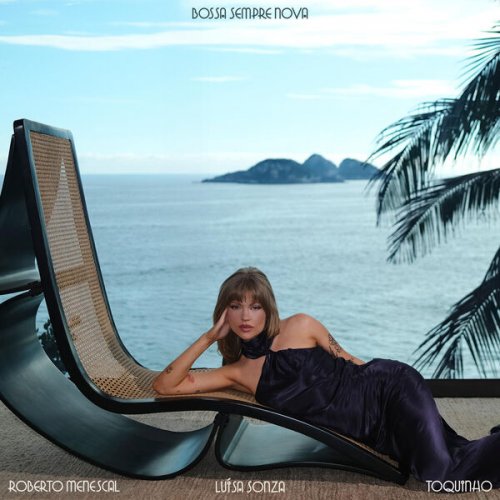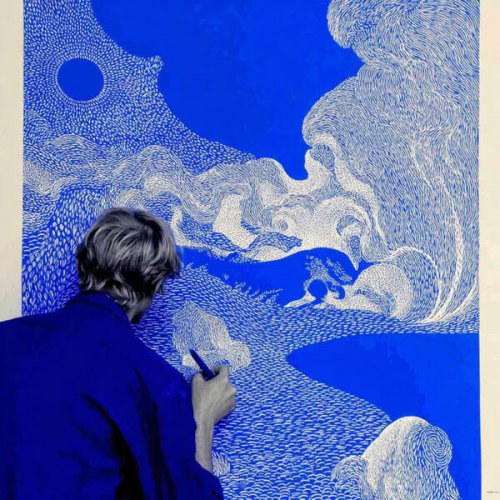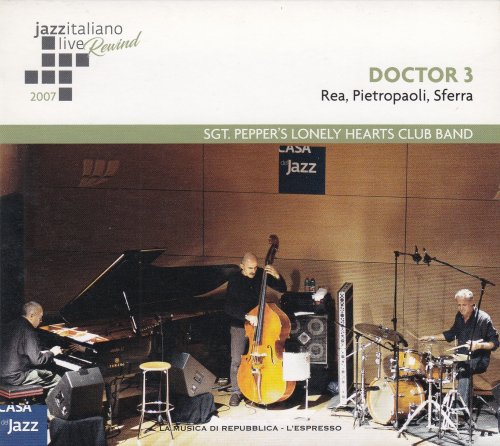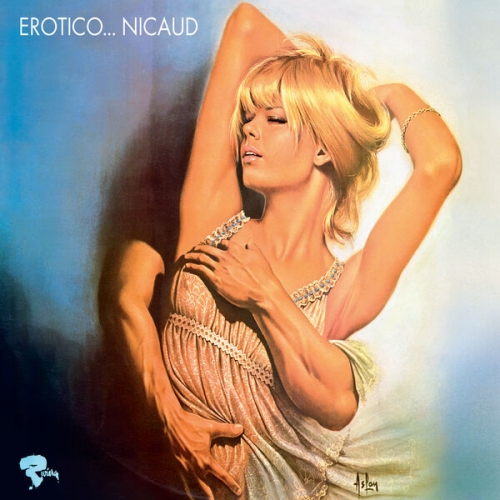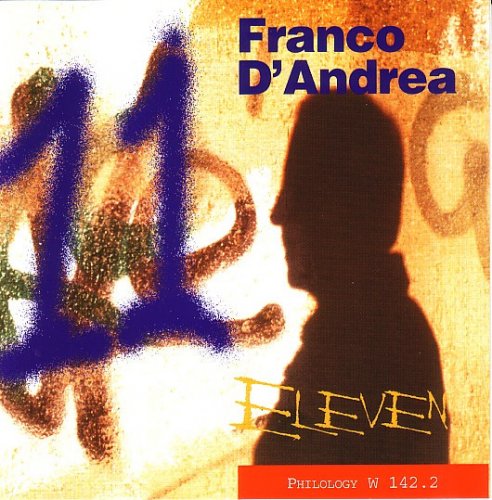Philip Catherine, Paulo Morello, Sven Faller - Pourqoi (2022) [Hi-Res]
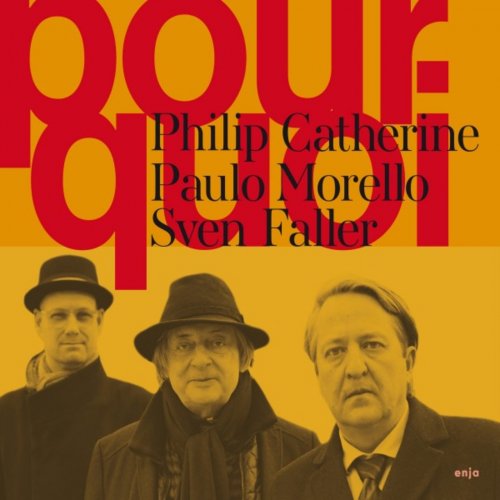
Artist: Philip Catherine, Paulo Morello, Sven Faller
Title: Pourqoi
Year Of Release: 2022
Label: Yellowbird Records
Genre: Jazz
Quality: Mp3 320 kbps / FLAC (tracks) / 24bit-44.1kHz FLAC (tracks)
Total Time: 51:03
Total Size: 120 / 153 / 410 MB
WebSite: Album Preview
Tracklist:Title: Pourqoi
Year Of Release: 2022
Label: Yellowbird Records
Genre: Jazz
Quality: Mp3 320 kbps / FLAC (tracks) / 24bit-44.1kHz FLAC (tracks)
Total Time: 51:03
Total Size: 120 / 153 / 410 MB
WebSite: Album Preview
1. Pourquoi (6:34)
2. Robert's Waltz (4:01)
3. To Martine (4:19)
4. Chateau Plagne (4:48)
5. Frontera (4:07)
6. Inútil Paisagem (3:00)
7. Ozone (6:15)
8. La Valse du Flipper (5:42)
9. Méline (5:10)
10. First Waltz (3:22)
11. Louisella (3:51)
Philip Catherine – guitar; Paulo Morello – guitar; Sven Faller – bass
"Pourquoi" is a composition by Philip Catherine lending its name to the second studio encounter with his guitar confrere Paul Morello and Sven Faller on bass. A "Pourquoi" which - yes, you read this right - is doing quite well without the question mark - a word- and title play through which the jazz guitar doyen Philip Catherine (b. 1942 is outing himself as a witty prankster and a joker in life and on stage; a living, young- at-heart jazz legend, turning eighty in 2022; a great musician, appreciated as a national hero in Belgium, the small country with the great jazz scene.
These three top artists perform their music - self-confident, with a virtually natural flow; stylistically assured through all genres; at times vivaciously swinging, at others contemplative and condensed like a successful film score - without a question mark. In more than fifty concerts with just their first album "Manoir de mes rêves" Catherine, Morello, and Faller let their trio art and repertoire mature. Like a good wine.
And they have developed an interplay of chamber-music-like quality never getting out of hand as a "guitar battle", but constantly living on listening and reacting. And which Sven Faller's double bass accompanying with sure pulse, canon-like counter melodies, and fills.
While the debut album kept centering around the trio's estimation for Django Reinhardt, Antonio Carlos Jobim, and jazzy interpretations of French chansons from the 50s and 60s, "Pourquoi" puts original compositions into focus. With the exception of "First Waltz" by Belgian film composer Frédéric Devreese (1929-2020) and the Mediterranean-like "Frontera" by Nicola Andrioli, the repertoire of "Pourquoi" comes from the compositional oeuvres of Catherine and Morello.
A kind of leitmotif are the waltzes such as Morello’s “Robert’s Waltz” - a melodious and jaunty number, dedicated to a Sinto friend in Hamburg taking up the tradition of the French musette waltz.
Catherine's "La Valse du Flipper" on the other hands is of course not about the American TV dolphin , but rather a pinball machine being proficient in three-four time!
The songlike "Louisella", metamorphosing from a rubato passage into an airy roots-samba à la Cartola, is dedicated to Catherine's granddaughter.
"Meline" is named after still another grandchild, and here Faller, Morello, and Catherine take off for another musical journey to Brazil as samba country.
Morello's "Chateau Plagne" prances through a southern French outing, while Catherine's "Ozone" marks the album's jazziest composition - and clarifies the threesome's rhythmic refinement in the bridge. In contrast there is the title song, spacy, laminar, and vast, which both guitarists spread out into the space like a big, electric Delay- and Sound painting. Sven Faller here plays one of more bass solos bowed.
The music of this trio masters the art of evoking places, persons, and moods so intensely that while listening they all of a sudden become familiar - even when you have never tasted the wine at "Chateau Plagne", nor having met "Louisella".
It is the evocative vividness and atmospheric intensity of this music in large part under the hands of Philip Catherine, this great melodist and chansonnier of jazz guitar, who can, says Paulo Morello, "make the guitar sing and sound like nobody else." A melodious excellence which embraces the whole trio and penetrates each solo, from Catherine's stronger shaped electric tone with the haunting vibrator and tremolos every now and again recalling Django Reinhardt to Paul Morello, who for this album adopts the more acoustic and Brazilian part.
It all had begun with a jam of both guitarists in the backstage area of the "International Jazzwoche Burghausen" back in 2010. Twelve years later - and without the question mark - this grew into one of the best trio settings Europe has to offer. Live and on two albums.
"Pourquoi" is a composition by Philip Catherine lending its name to the second studio encounter with his guitar confrere Paul Morello and Sven Faller on bass. A "Pourquoi" which - yes, you read this right - is doing quite well without the question mark - a word- and title play through which the jazz guitar doyen Philip Catherine (b. 1942 is outing himself as a witty prankster and a joker in life and on stage; a living, young- at-heart jazz legend, turning eighty in 2022; a great musician, appreciated as a national hero in Belgium, the small country with the great jazz scene.
These three top artists perform their music - self-confident, with a virtually natural flow; stylistically assured through all genres; at times vivaciously swinging, at others contemplative and condensed like a successful film score - without a question mark. In more than fifty concerts with just their first album "Manoir de mes rêves" Catherine, Morello, and Faller let their trio art and repertoire mature. Like a good wine.
And they have developed an interplay of chamber-music-like quality never getting out of hand as a "guitar battle", but constantly living on listening and reacting. And which Sven Faller's double bass accompanying with sure pulse, canon-like counter melodies, and fills.
While the debut album kept centering around the trio's estimation for Django Reinhardt, Antonio Carlos Jobim, and jazzy interpretations of French chansons from the 50s and 60s, "Pourquoi" puts original compositions into focus. With the exception of "First Waltz" by Belgian film composer Frédéric Devreese (1929-2020) and the Mediterranean-like "Frontera" by Nicola Andrioli, the repertoire of "Pourquoi" comes from the compositional oeuvres of Catherine and Morello.
A kind of leitmotif are the waltzes such as Morello’s “Robert’s Waltz” - a melodious and jaunty number, dedicated to a Sinto friend in Hamburg taking up the tradition of the French musette waltz.
Catherine's "La Valse du Flipper" on the other hands is of course not about the American TV dolphin , but rather a pinball machine being proficient in three-four time!
The songlike "Louisella", metamorphosing from a rubato passage into an airy roots-samba à la Cartola, is dedicated to Catherine's granddaughter.
"Meline" is named after still another grandchild, and here Faller, Morello, and Catherine take off for another musical journey to Brazil as samba country.
Morello's "Chateau Plagne" prances through a southern French outing, while Catherine's "Ozone" marks the album's jazziest composition - and clarifies the threesome's rhythmic refinement in the bridge. In contrast there is the title song, spacy, laminar, and vast, which both guitarists spread out into the space like a big, electric Delay- and Sound painting. Sven Faller here plays one of more bass solos bowed.
The music of this trio masters the art of evoking places, persons, and moods so intensely that while listening they all of a sudden become familiar - even when you have never tasted the wine at "Chateau Plagne", nor having met "Louisella".
It is the evocative vividness and atmospheric intensity of this music in large part under the hands of Philip Catherine, this great melodist and chansonnier of jazz guitar, who can, says Paulo Morello, "make the guitar sing and sound like nobody else." A melodious excellence which embraces the whole trio and penetrates each solo, from Catherine's stronger shaped electric tone with the haunting vibrator and tremolos every now and again recalling Django Reinhardt to Paul Morello, who for this album adopts the more acoustic and Brazilian part.
It all had begun with a jam of both guitarists in the backstage area of the "International Jazzwoche Burghausen" back in 2010. Twelve years later - and without the question mark - this grew into one of the best trio settings Europe has to offer. Live and on two albums.
